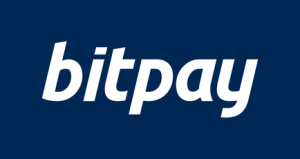ChainDB: A Peer-to-Peer Database System from BitPay
 BitPay wants ChainDB to secure data using the block chain, and the payments processor needs the Bitcoin community’s help with the project.
BitPay wants ChainDB to secure data using the block chain, and the payments processor needs the Bitcoin community’s help with the project.
In an effort that is more like Factom than storj, BitPay outlines in a recent paper a mechanism for creating counterfeit resistant databases using the Bitcoin mining network. A so-dubbed ChainDB (chain database) would benefit from the full power of the Bitcoin mining network “to create an unforgeable history of database mutations.”
According to BitPay, “the existing Bitcoin network can be leveraged for new applications with little or no change to the core Bitcoin protocol.”
The firm says it would try to avoid the risk involved with “any material change to the core Bitcoin protocol.”
As the company writes in its paper:
Bitcoin [1] has demonstrated a new approach to securely storing data in the cloud. The Bitcoin database services millions of users around the planet and has thus far shown itself to be essentially invulnerable to attack. Bitcoin does not require boundary defenses to protect the integrity of the database, instead it relies on a consensus of peers to build an independently verifiable historical record.
In order to undermine the Bitcoin network, and revise the history of the database, a nefarious agent would need computing power in excess of the combined power of the honest participants in the Bitcoin network.
This is what BitPay wants to do, but for database storage.
ChainDB seeks to apply that same approach to securing arbitrary sets of data in the cloud. However, rather than create yet another Bitcoin clone that requires its own mining network, ChainDB uses the existing Bitcoin mining network.
A ChainDB organizes transactions (in the database sense) into blocks that are then referenced by transactions in the Bitcoin block chain. Validation rules specific to a ChainDB govern whether a given chain of blocks and transactions is valid. Participants in a chain create blocks and append them to the chain by competing to get their block defining transaction into the Bitcoin block chain. Block selection rules govern which participant successfully defines the next block. As with Bitcoin, the winner of a block receives rewards in the form of newly created assets or transaction fees. The exact nature and composition of the reward is specific to a chain.
BitPay looks to develop the technology due to the daily needs of running the world’s largest Bitcoin payment processor. As the team writes:
Much of this work has evolved from the need to secure BitPay’s payment system and many hours spent brainstorming how to accomplish that task. Many brilliant developers (and non– developers) have contributed various ideas reflected in this paper (and many ideas that will be covered in future papers on ChainDB).
BitPay recognizes various projects that informed their development of ChainDB, including Namecoin, the BitShares project, Ethereum and Truthcoin.
BitPay also mentions Factom, which “has advanced the concept of using the Bitcoin block chain directly for timestamping data. These are just a few of the many projects that are advancing the state of the art in Bitcoin.
If you would like to comment on the project to BitPay directly , they’ve set up a lab to do so on their forums. Chaindb appears to be a part of BitPay’s overall project to decentralize the internet.